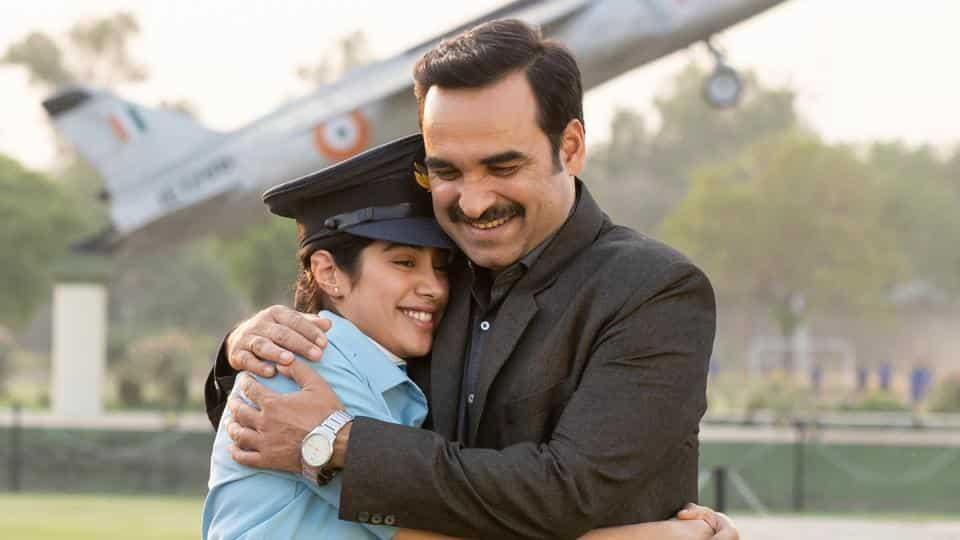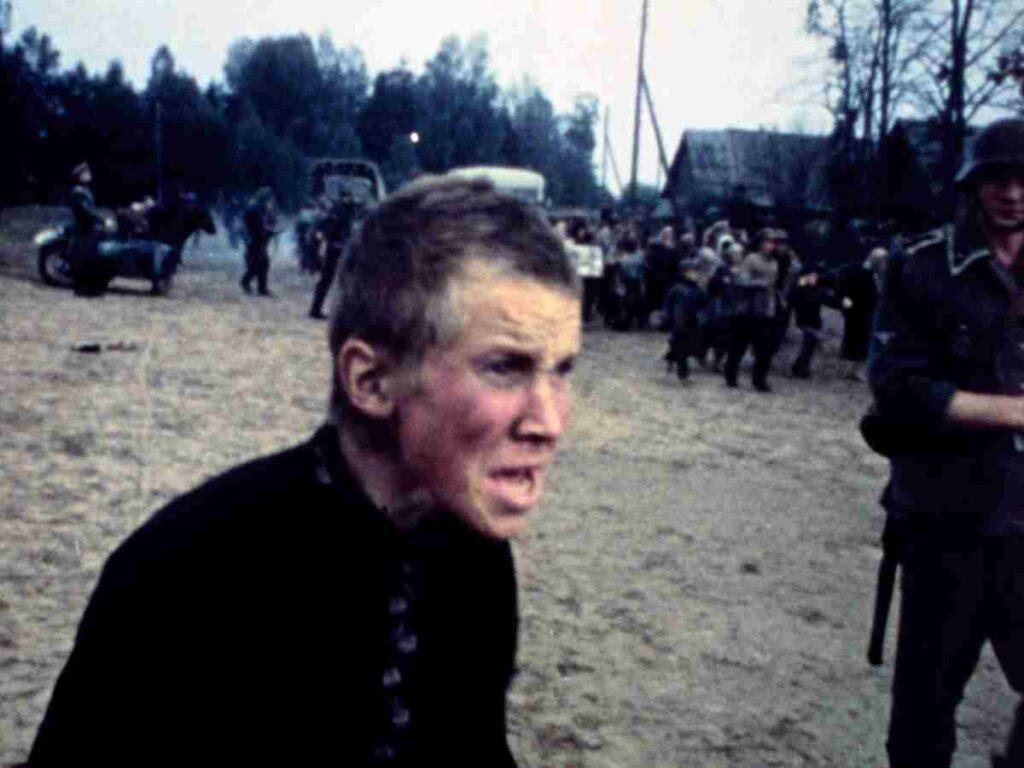Premised around the life of ‘The Kargil Girl’ Gunjan Saxena, this eponymous film is a tribute to the indomitable spirit and the unbeatable leadership skill possessed by the woman of steel, who served at the forefront in the Kargil war after years of strenuous training. Having ventured for something which was considered unusual for women, Saxena did not only defy norms in her time, but also set the right precedent for generations of women to come.
Observing a pattern in recent releases, I would also like to note how films like Shakuntala Devi and Gunjan Saxena coming to the fore have brought women-centric stories into the limelight lately. Much like Shakuntala Devi, overcoming is a primary theme that runs throughout the story, and inspiration from the extraordinary is what it will leave you with.
Directed by Sharan Sharma, the film follows Saxena’s trajectory right from childhood in a linear narrative fashion. We see a little girl obsessed with the idea of becoming a pilot, whose sadness knows no bounds when she accidentally ends up doing well in her 10th exams. As her earnest wishes lie in becoming a pilot, she has to fight several battles with her family, her fate, and her self.
Met with challenges and setbacks one after another, Gunjan Saxena rises above her obstacles with renewed strength. As a character, Saxena’s life makes for the perfect underdog story due to the uniquely unusual nature of her professional as well as personal journey. While some of her misfortunes are shown with a certain comic quality that the circumstance allows for, others are dramatized with unprecedented suddenness.
The bit wherein her enrollment into the flying academy gets delayed twice due to their change in minimum qualification policy, a quick and funny montage runs us through years worth of time. When she hits her share of failures and dejections, however, there is a high degree of dramatic element, specifically in scenes wherein she has dialogues that demand impact.
Coming to performances, the film belongs to lead actor Jahnvi Kapoor, who shines in the role of Gunjan Saxena and manages to recreate a Sridevi-like charm on screen. What perhaps marks the strength of an actor is rendering scenes without dialogue. Jahnvi emotes feelings in the film which are sure to jerk tears, fill you with pride and take you through the ups and downs of her life, all with equally effective ease.
Not to mention, she dances to Gunjan’s favorite song Aye jee oh jee with as much candor as her own uncle Anil Kapoor did in Ram Lakhan from the 90s. Overall, she slips into the skin of the character with a sensitivity towards her life graph, succeeding in depicting exactly what it takes to be Gunjan Saxena. If you were wondering why the film invited so much hype, Jahnvi’s refined performance gives you good reason.
However, what perhaps forms the foundation of this film is the performances par excellence delivered by Pankaj Tripathi and Vineet Kumar Singh. Together they create the push and pull factor for the protagonist and form the center of conflict in the film. The father-daughter relationship shared in the film serves as the driving force. It is the figure of the father who gives flight to all of Gunjan’s eccentricities since childhood. He wants her to face the world on her own terms. That being something which is much resented by her brother and her mother, who, incapable of envisioning freedom for women as the father-daughter duo do, also comes as a hindrance for Gunjan in her early days of training.
Although the age-old fears, inequalities, and mistreatments, which had their seeds sown by patriarchy continue to haunt Gunjan throughout the film, she fights them off with resilience. As sad as it sounds, the film does hold its share of relevance even today; which is why a story of this amount of power ought to be told in this fashion.
Despite that, it wouldn’t be wrong to say that the overt elements and the anti-patriarchy commentary could have been made more subtle.
As far as narrative is concerned, the film oscillates between extremes, as you go through montages of high emotion and low emotion in an uncanny alternation. Though this might seem like an unnecessary strategy for a biography, it works out for the film. It’s more palatable for audiences with varied preferences across the board. Indeed, it derives power through the music of Amit Trivedi, and is almost driven forward by the beats that almost seamlessly mix with the hovering sound of the helicopters our protagonist takes off in.
Manush Nandan’s camerawork differentiates well between scenes that call for handheld and those that call for a still frame. It provides a well-furnished internal rhythm and well-articulated emotion to the film. But, what really adds to the emotional quotient of the film is the editing by Nitin Baid (of Masaan and Gully Boy). The most crucial technical element of this film has to be condensing a full life into a mere duration of two hours, which calls for skilful transitions across years. And that has been achieved with a brilliant sense of structure and timing.
The film stands for a brand of feminism that advocates action and agency alike, making it a must-watch for everyone. It will make you stay for the story, and for the telling alike.
Rating: 3/5
Where to Watch: Netflix




